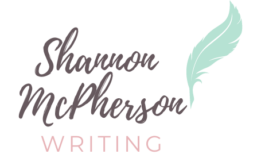What is genre? Well, genre is simply the categories in which writing (and other things) is broken up into. Categories can include romance, science fiction, fantasy, mystery, young adult, thriller, horror, historical, magical realism, etc.
For me, I felt for a long time that I needed to identify what genre I was writing before I could even start going. I enjoy reading fantasy novels, so I felt that writing one would be a perfect fit. However, as I attempted to write one, I got so overwhelmed by the world building. Fantasy writers create these immense worlds full of new languages, places, people, events, and so on. Just thinking about how to build out the world I wanted to create was so intimidating. Does that mean fantasy writing is not for me? Not necessarily.
Genres are something that publishers and critics have created to essentially sort books. The New York Times Bestseller list is broken up into different categories and if you go into your local bookstore, you can go to the mystery or fiction section to find what book you’re looking for. But writing with a specific genre in mind can be crippling for a writer, as it has been for me. You feel you need to fulfill these certain expectations the reader has when they open a western novel but trying to tick all the boxes as you write may not be valuable for you as a writer.
In Margaret Atwood’s Master Class, she says “your job is to make your book the best, most compelling version of itself, plausible within its own imagined realm and set of rules. Let others worry about what genre it is (or isn’t).”
I feel like this is a very important concept for writers to keep in mind. When your reader opens your book, you want them to be captivated from start to finish. You want your book to make sense in the rules you have established for your world, whether it be set in modern, everyday society, or a fantastical world of your own creation. It’s okay to blend genres, like Neil Gaiman so often does in his novels, but you need what you’re writing to make sense.
At the end of the day, you’re often not responsible for how your book is labeled in the marketing of it (fingers crossed a publisher picks it up and it hits shelves). As a writer, your responsibility is to write something that your readers will enjoy. Don’t get hung up on how it will be labeled at the end of the day. Try not to write yourself into a box or corner and end up stuck in your process, trashing your project as a result. Write what you want to write, and the rest will fall into place.

